April 15, 2025 | 06:39 GMT +7
April 15, 2025 | 06:39 GMT +7
Hotline: 0913.378.918
April 15, 2025 | 06:39 GMT +7
Hotline: 0913.378.918
Through exclusive cooperation with CSIRO (Australian Government Commonwealth Scientific and Industrial Research Organisation), Viet Uc Corporation (VUC) has become a pioneer in investing in the broodstock field from 2010 until the present date.
After many years of conducting genetics and breed selection, the Ministry of Agriculture and Rural Development has officially allowed VUC to put broodstock whiteleg shrimp into commercialization, marking a new breakthrough for the Vietnamese shrimp industry.
The broodstock breeding program has brought Vietnam into one of the four major powers (along with the USA, Singapore, and Thailand) that can actively source broodstock, contributing to changing the ranking of Vietnam's shrimp industry on the world map, creating an initiative in the production of high-tech shrimp seed sources, and increasing the success rate and profit for farmers.
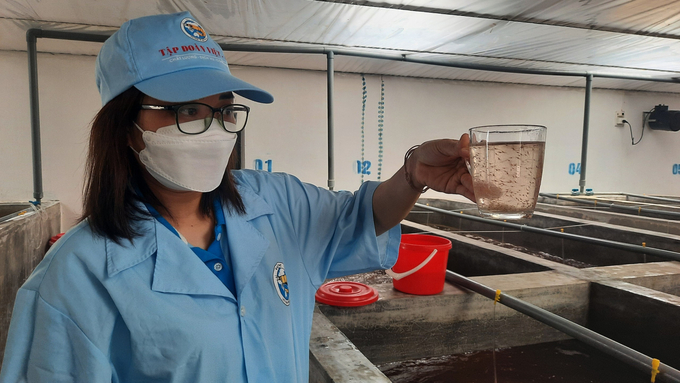
High-tech shrimp seed VUS LEADER 21 of Viet Uc Seafood Corporation stands out with superb traits. Photo: Nguyen Thanh.
Realizing the importance of shrimp seed from the early days, Viet Uc Corporation has researched and brought superior technological solutions to Vietnam and applied them to production. For the seeds to have the best rearing conditions, VUC invests in producing feed for shrimp larvae, including fresh algae and Artemia with outstanding nutritional ingredients, meeting the needs of comprehensive development and shrimp seed quality improvement.
While speaking, Mr. Nguyen Xuan Thang, Managing Director of Viet Uc Quang Ninh Co., Ltd took out his ID card to make a comparison. “Every citizen from birth to adulthood has an identity document, and so will Viet Uc’s shrimp. Thanks to the application of electronic technology, it is possible to stick a chip at the shrimp just like issuing an "identity card" for each individual. The shrimps are hence isolated, each individual can be closely monitored and screened to avoid kinship or inbreeding and help farmers trace the shrimps’ origin.”
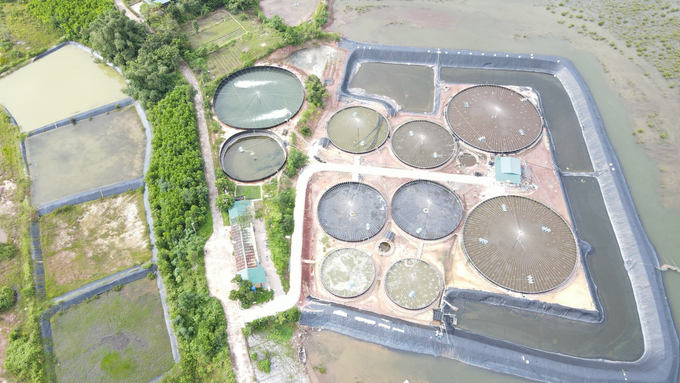
The factors of seed, environment, feed and technique all require balance, suitable for each locality and farming area. Photo: Nguyen Thanh.
Taking a step further, Viet Uc gradually applies the most modern and advanced research in the field of biotechnology, such as Gene/AND technology, molecular genetic technology, and quantitative genetic technology, thus helping to decode the entire shrimp genome on a large scale.
Thanks to methodical and thorough investment from technology, personnel, infrastructure, high-tech shrimp seed VUS LEADER 21 has brought a "new wind" to the shrimp industry, creating peace of mind and ensuring success for shrimp farmers across the country before each new stocking crop.
“First - the seed, second - the environment, third - the feed, fourth - the technique”, This is a saying that many generations of shrimp farmers as well as aquaculture farmers in general often hear from each other, implicitly affirming the quality of seed is the top factor. But in the view of Mr. Nguyen Xuan Thang, all these four factors are equally important. Farmers need to ensure a balance between the four factors for a successful crop.
Besides, the "fit" factor was also emphasized by Mr. Thang. “To be ‘fit’ here means the breed from the South and the North will have different characteristics. In the North, the weather is colder, so besides the fast growth trait, shrimp seeds need to be able to adapt well to weather conditions and are cold-resistant. VUC shrimp varieties are studied to select characteristics suitable to each region’s environment and weather. Customers when working with VUC can ‘order’ shrimp seeds corresponding to the conditions of the farming area, thereby limiting the risks in the process of farming.”
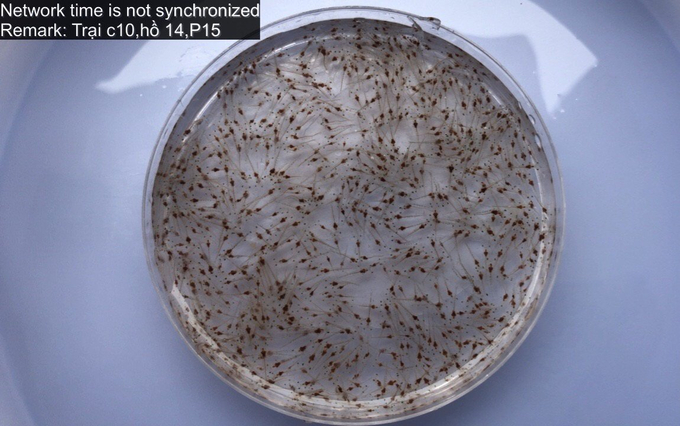
VUC will offer support to customers who order shrimp seeds by providing inspection of the water area and advice on farming methods. Photo: Nguyen Thanh.
Shrimp farmers can also choose “evaluation using feelings” measures to select quality shrimp seeds. They can assess in many regards such as size, light color, obvious pigmentation, closed antennae, long, slender abdominal segments, full abdominal muscles, full shell flesh, and well-proportioned head and body.
"When releasing shrimp seeds into the pot, try to stir well with your hands. Strong shrimp often swim against the current or cling to the wall of the pot, while weak shrimp gather in the middle. If more than 5% of juveniles float along the water current, it means they are weak and bad shrimp seeds that should not be purchased," said Mr. Thang.
Having clearly identified the role of aquatic breeds, Quang Ninh province has focused on producing and importing quality seeds to meet the people’s demands.
If it was in 2015, the number of aquatic breeds stocked in the province was 3,852 million heads, and the number of breeds produced on the spot was 550 million, only meeting 14.3% of the farmers' stocking demand. By 2021 the number of aquatic breeds stocked in the province increased to 5,421 million, and the number of seeds produced on the spot is 2,110 million, meeting nearly 40% of farmers’ stocking demand.
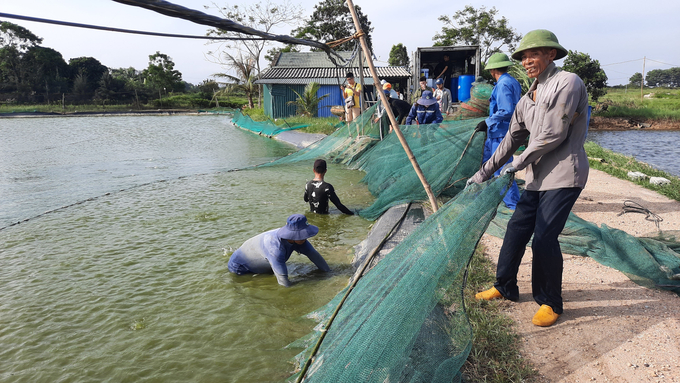
Quang Ninh sets a goal to actively meet 70% of the demand for aquatic breeds thanks to local production by 2025. Photo: Viet Cuong.
As shared by Director of Quang Ninh Fisheries Sub-Department Do Dinh Minh, the province strives to have 7,800 million seeds of fishery breeds stocked in the province by 2025, in which the number of varieties produced on the spot would be 5,460 million, meeting approximately 70% of farmers’ stocking demand. Quang Ninh focuses on improving the quality of aquatic breeds by investing in the infrastructure of breeding and seed production areas.
Quang Ninh orients to develop the fisheries industry as an important economic sector in the province's socio-economic development strategy. The aim is that the fisheries sector accounts for approximately 60% of the province's GRDP by 2030. The value of fisheries output at fixed prices reaches over VND 10,700 billion, having an average growth of 6.3%/year, creating jobs for 50,000 workers.
Translated by Samuel Pham
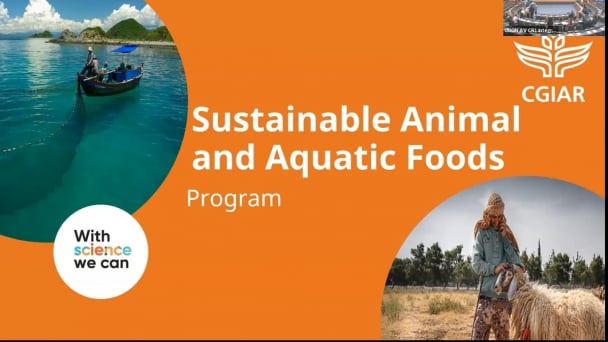
(VAN) The CGIAR’s Sustainable Animal and Aquatic Foods (SAAF) program represents a new approach that emphasizes the transformation of food systems toward sustainability.
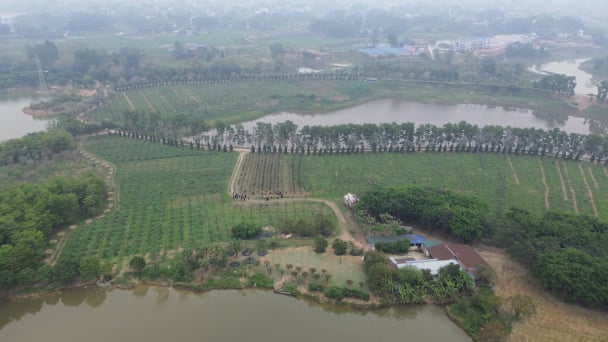
(VAN) Scientists assume that industrial agriculture has been 'outdated.' As a result, a comprehensive overhaul or a revolution in the direction of embracing ecological agriculture is needed.
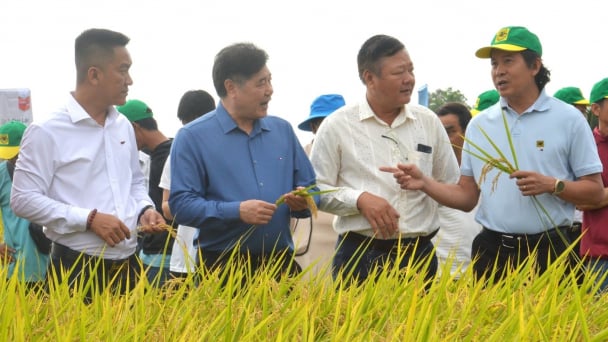
(VAN) The results from pilot fields are catalyzing the expansion of the One million hectares of high-quality, low-emission rice project in Kien Giang.
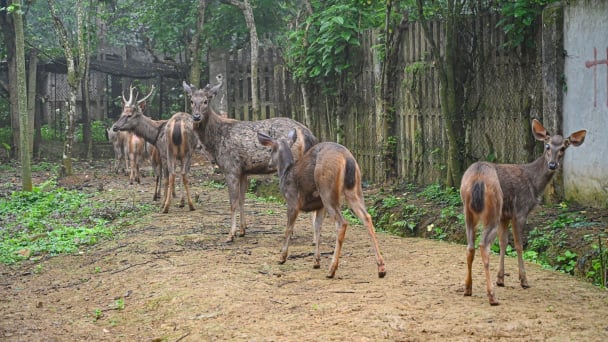
(VAN) On the morning of April 11, Cuc Phuong National Park received 18 individuals of endangered and rare wild animals from Da Nang city.
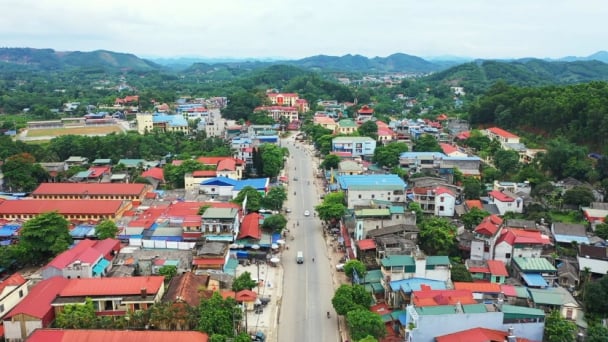
(VAN) FAO supports Vietnam in enhancing survey sampling techniques for the 2025 nationwide agricultural and rural census.
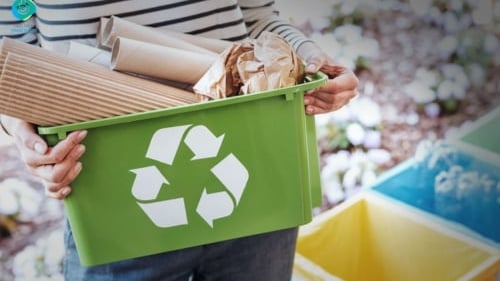
(VAN) By participating in the green transition, manufacturers become an indispensable part of the circular economy, contributing to resource optimization and environmental protection.
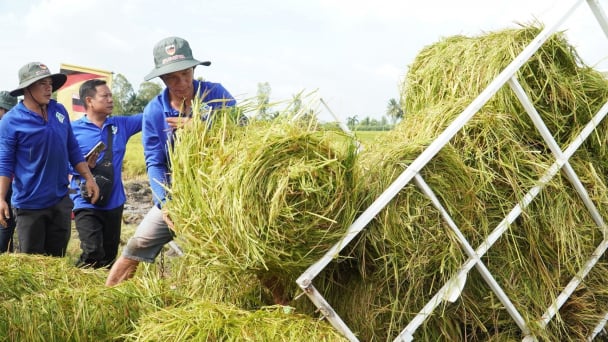
(VAN) The One Million Hectares of High-Quality and Low-Emission Rice Program can generate nearly 14 million tons of straw annually, posing an urgent requirement to diversify straw-based products.